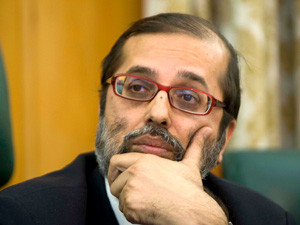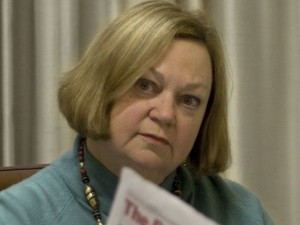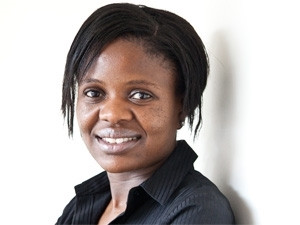
Communications minister Yunus Carrim has broken the previous inertia at the Department of Communications (DOC), amazing its critics by rapidly getting key policies published, filling vital vacancies, connecting schools, and moving on spectrum.
The level of progress Carrim has made since taking over last July from his predecessor, the disgraced Dina Pule, was revealed in Parliament yesterday when he addressed the portfolio committee on communications. The minister provided a progress report against his commitments to the committee last August.
The minister's presentation says the department's "sense is that we have delivered on most, not all, targets and have, overall, done reasonably. But, of course, we can do more - and we must."
However, commentators, who have welcomed the level of progress at a department that has been plagued by inertia for at least the last 10 years, caution that this level of movement needs to continue past the 7 May elections.
Meeting targets
Since taking up office in the middle of last year, Carrim has fulfilled several targets. These include getting the DOC to work more effectively by filling several posts, including CFO and chief directors for posts such as human resource management and internal audit and risk management.
The department has also held meetings with 191 organisations in a bid to build a less fragmented ICT sector. To add to this goal, the DOC will focus on key measurable aims to assess the status of the sector and is reviewing is stakeholder engagement strategy.
Last November, the department wrapped up the long-awaited broadband strategy and policy (SA Connect), as well as the issue around set-top box controls. A draft spectrum policy has also been developed and this is set to be aligned with the broadband policy.
In addition, various initiatives have been taken to cut the cost of communication, including lower termination rates, although these are on hold until May, because MTN is taking the Independent Communications Authority of SA to court.

Progress has been made in providing connectivity to schools. Some 6.8% of all the schools that have been connected since 2009 have been hooked up in the past two months, although just more than 200 still need to be connected before the elections.
Impressed industry
Dominic Cull, regulatory adviser to the Internet Service Providers' Association, says: "We haven't seen decision-making and movement from the DOC like this since the rinderpest." He notes, however, there is still a great deal for the department to tackle and the momentum needs to be maintained.
Democratic Alliance shadow minister of communications Marian Shinn says Carrim has "disrupted the inertia at DOC and its entities. Let's hope this is a good foundation for the future of ICT in SA and that he, or his successor in the post, sustains this level of energy."
Shinn adds some of the other issues will take time to resolve - the DOC has been dysfunctional for years and the culture cannot be changed overnight. "The industry has grown despite the DOC, not because of it, and they tend to be distrustful of government's ability to create the necessary dynamic environment."
However, Shinn notes the committee has not yet had a chance to interrogate Carrim on details of the progress report, which will happen today.

The hope is that Carrim will at least have the DOC stable for the next term, and make major movement forward on his key issues so his successor can hit the road running, says Shinn. "Here's hoping."
Ovum analyst Richard Hurst says the fact the department is meeting its own targets is good news for the sector, and the progress made in connecting schools and moving on broadband is "wow".
IDC analyst Spiwe Chireka echoes Hurst, saying things seem to be moving much faster than what has been seen in the past 10 years. She hopes, post-election, the same degree of momentum is maintained and the pending post-election Cabinet shuffle does not derail the progress.
Nitty-gritty
Shinn says Carrim has worked incredibly hard to break the logjams that have developed in the industry - especially around the set-top box issue. "He has shown a commitment to resolve issues through consensus to avoid protracted legal battles."
Carrim's top priority was to properly skill the department and build its credibility, and key vacancies have been filled and the transition to the new organisational structure has been completed, says Shinn. "Now only time will tell whether these building blocks will produce an effective and credible department."
Shinn adds the two policies published towards the end of last year, on set-top box access control and broadband, have been well received. "All these policy initiatives are much needed and have injected a sense of energy into the DOC which has been missing for years. They're getting things done because he is making it happen."

Cull says although a broadband policy has been approved by Cabinet, implementation details are still required. He notes, however, there has been progress towards clarifying what is happening around releasing spectrum, which is vital for the industry.
Hurst says next the department needs to tackle turning on digital television and releasing spectrum. Shinn explains the spectrum policy direction should be out soon, which is good news because this is holding up a shift to long-term evolution.
Chireka says the pace at which schools are being connected indicates the 2015 target may even be met. "Imagine what will happen in the next six months."
Although schools are finally getting connected, Cull says the department needs to move to a position where it can measure the sustainability of these processes.
Share